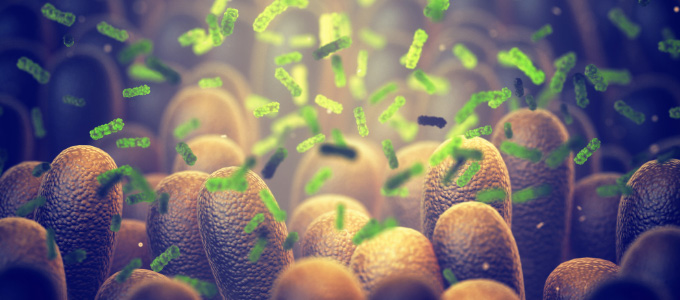The Human Microbiome
Each human body has a unique array of microorganisms, collectively called the “microbiota”. There may be 1000 different species and over 100-fold more genes that are in the human genome. Studies have demonstrated a symbiotic relationship between the human host and the bacterial microbiota of the gut. The education and maturation of the intestinal immune system is the result of millions of years of co-evolution with host and their microbiota and dietary intake.
The microbiota serves as a metabolic “organ’ that actively participates in host metabolism. These bacteria are involved in regulating inflammation, energy, and immunity, playing a role in the development of metabolic and immunological diseases. In addition, the microbiota can improve nutritional status by aiding in digestion, extracting nutrients, and synthesizing vitamins and certain amino acids.
Nutrition plays a prominent role in promoting a healthy gut microbiome. Plant-based eating patterns – one that is high in unrefined carbohydrates and low in fat while providing adequate amounts of protein – support a microbiota that is robust in health-promoting species while preventing overgrowth of pathogenic bacteria.



